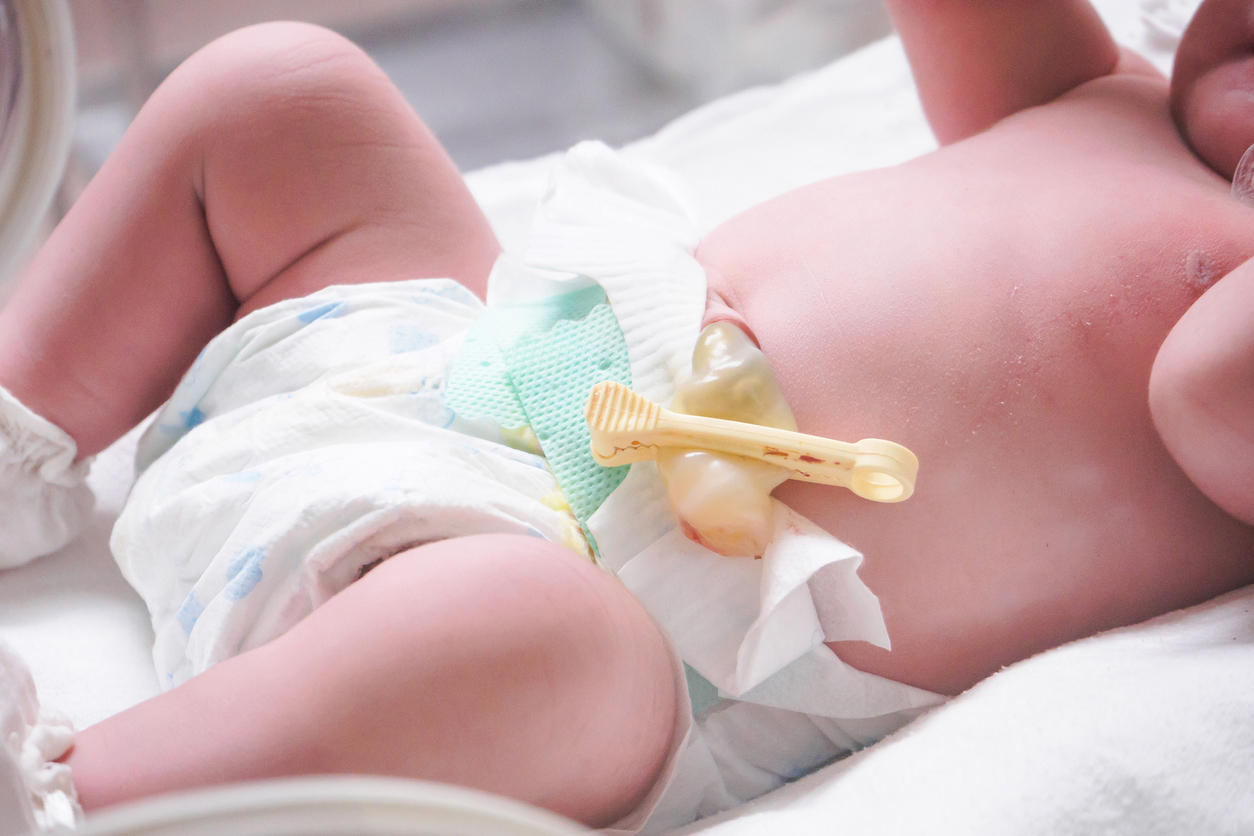Umbilical Cord Prolapse Birth Injury Claims
Gregg Hollander | April 1, 2023 | Medical Malpractice

Birthing complications can be terrifying, especially when the health and life of the baby are at risk. Umbilical cord prolapse, or UCP, is a complication that can develop before or during delivery. It occurs when the umbilical cord exits the cervix before the baby.
The umbilical cord is the connection between the mother and the infant. Babies receive the oxygen and nutrients they need through the umbilical cord. If the umbilical cord prolapses or drops into the vagina ahead of the baby, the cord can become pinched or compressed by the baby’s body.
The result is the baby struggling to receive oxygen during labor and delivery. Without immediate diagnosis and treatment, a baby can develop severe disabilities from losing oxygen. Of particular concern is permanent brain damage due to the lack of oxygen.
Identifying Risks for Umbilical Cord Prolapse and Diagnosing the Condition
Nurses and doctors should identify mothers that could be at risk for umbilical cord prolapse. Identifying the risks of UCP means medical staff can be ready to provide immediate treatment to reduce the chance of the baby suffering permanent injury if the cord precedes the baby out of the cervix.
For example, an early delivery (before 36 weeks), previous high-risk pregnancies, and premature membrane rupture increase the risk of UCP. Likewise, using forceps or a vacuum during delivery can increase the risk of umbilical cord prolapse. UCP is also more likely if the child is in an abnormal position.
Electronic fetal heart monitoring can give doctors an early indication of umbilical cord prolapse. An abnormal fetal heart rate pattern is an indicator of UCP. Bradycardia or severe heart decelerations can often be seen early during labor.
Also, a doctor performing a pelvic examination can diagnose UCP. They might see or feel the prolapsed umbilical cord with their fingers during the exam.
Why Is Umbilical Cord Prolapse a Problem for the Infant?
A prolapsed cord can wrap around the baby’s neck. The baby’s head or shoulder can also compress the cord. In either case, the result is a lack of oxygen to the baby’s vital organs.
Oxygen deprivation can cause permanent brain damage within a short period. Cerebral palsy, fetal hypoxia, and death are all possible if the baby goes without oxygen.
If umbilical cord prolapse is diagnosed in time, the doctors can try to release the prolapse or perform a C-section. The longer the prolapse goes undiagnosed, the higher the risk to the baby, and the options for correcting the problem decrease.
Can I File a Medical Malpractice Claim for Umbilical Cord Prolapse?
Childbirth injuries are more common than many people realize. If you or your child sustained injuries because of umbilical cord prolapse or another problem during labor and delivery, you could have grounds for a medical malpractice claim.
The doctors or medical staff could be liable for medical malpractice if they failed to diagnose or diagnosed UCP too late. Likewise, a delayed or inadequate response could also be grounds for a medical malpractice claim.
You must prove the following legal elements in a medical malpractice case in Florida:
- Legal duty of care based on the doctor-patient relationship
- Breach of duty (medical errors or negligence)
- Causation (the link between negligence and the injury)
- Damages (harm caused by medical negligence)
If you are unsure what to do after a birth injury, contact a Boca Raton birth injury lawyer. An attorney will review your case during a free consultation and advise you of your legal options.
What Damages Can I Recover in an Umbilical Cord Prolapse Claim?
The court cannot undo the harm your baby suffered because of medical negligence and mistakes during childbirth. However, the court can award a monetary judgment to compensate you and your child for your losses.
Damages in a birth injury claim for umbilical cord prolapse can include the following:
- Medical bills, including the cost of future care and treatment
- Long-term disability
- Physical and occupational therapy
- Loss of earning capacity
- Pain and suffering
- Diminished quality of life
- Special education needs
- Medical devices
- Emotional distress
- Damages for wrongful death
The economic and non-economic damages depend on the facts of the case. Medical specialists and rehabilitation experts can provide opinions and evidence to help establish the severity of injuries and damages.
How Long Do Parents Have To File a Medical Malpractice Claim for Umbilical Cord Prolapse in Florida?
The statute of limitations for most medical malpractice claims is two years in Florida. The time begins when you knew or should have reasonably known about the injury. However, there is a four-year limit on medical malpractice claims, but this deadline might not apply if the child is under eight years old.
Calculating the deadline for filing claims in a birth injury case can be complicated. Therefore, seeking legal advice when you suspect a problem to protect your child’s legal rights is best.
Contact Our Medical Malpractice Law Firm in South Florida
If you’ve been injured in an accident, please contact our experienced personal injury lawyers in Florida at Hollander Law Firm Accident Injury Lawyers to schedule a free consultation today. We have three convenient locations in Boca Raton, Fort Lauderdale, and West Palm Beach.
We proudly serve Palm Beach County, Broward County, and its surrounding areas:
Hollander Law Firm Accident Injury Lawyers – Boca Raton Law Office
7000 W Palmetto Park Rd #500
Boca Raton, FL 33433
(561) 347-7770
Hollander Law Firm Accident Injury Lawyers – Fort Lauderdale Law Office
200 S.E. 6th Street #203
Fort Lauderdale, FL 33301
(954) 287-0566
Hollander Law Firm Accident Injury Lawyers – West Palm Beach Law Office
319 Clematis St #203
West Palm Beach, FL 33401
(561) 556-7873
